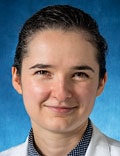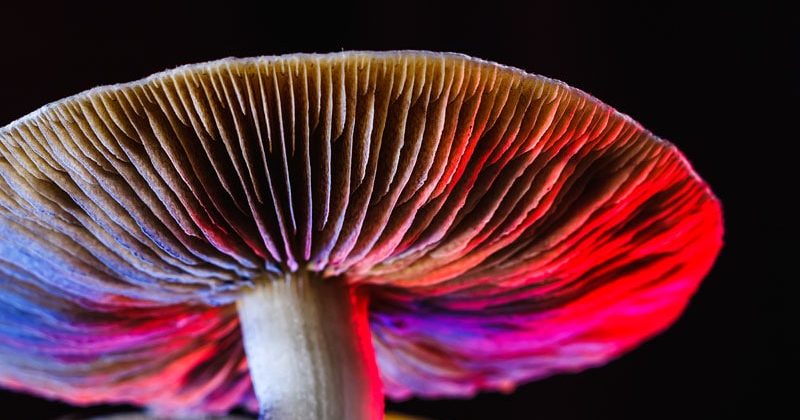The substantial antidepressant effects of psilocybin-assisted therapy may be durable up to at least 1 year in some patients with major depressive disorder (MDD), new research indicates.
Two doses of psilocybin provided in the context of supportive therapy produced “large and stable” antidepressant effects throughout a 12-month follow-up period, report researchers with the Center for Psychedelic and Consciousness Research at Johns Hopkins University School of Medicine, Baltimore, Maryland.

Dr Natalie Gukasyan
“We have not yet collected formal data past 1 year in our sample (but) some participants in our study have stayed in touch and report continued improvements in mood,” study investigator Natalie Gukasyan, MD, told Medscape Medical News.
“A previous study of psilocybin-assisted therapy in patients with cancer-related depression and anxiety symptoms found that improvements in mood and well-being may persist up to 4.5 years following treatment,” Gukasyan noted.
The study was published online February 15 in the Journal of Psychopharmacology.
Enduring Benefit
Preliminary data suggest that psilocybin-assisted treatment produces substantial and rapid antidepressant effects in patients with MDD but the durability of the effects are unclear.
Investigators examined the efficacy and safety of psilocybin through 12 months in 24 adults who met criteria for a moderate to severe episode of MDD as defined by a score of 17 or greater on the GRID-Hamilton Depression Rating Scale (GRID-HAMD) assessed by blinded clinician raters.
Following 6-8 hours of preparatory meetings, participants received two doses of psilocybin at 20 mg/70 kg and 30 mg/70 kg spaced roughly 2 weeks apart. Psilocybin was administered in a comfortable room under supervision following established safety guidelines.
Depression, as measured by GRID-HAMD, decreased substantially after treatment and remained low through 12 months posttreatment, the investigators report.
For most participants, GRID-HAMD scores decreased from 22.8 at baseline to 8.7 at 1 week, 8.9 at 4 weeks, 9.3 at 3 months, 7 at 6 months and 7.7 at 12 months after treatment.
“The effect size at 12 months was very large (Cohen d = 2.4). Likewise, high and stable rates of response and remission occurred throughout the follow-up period (75% response and 58% remission at 12 months),” the investigators note.
Two patient-rated measures of depression — the Quick Inventory of Depressive Symptoms (QIDS) and the Beck Depression Inventory II (BDI-II) — showed similar “large magnitude and stable” antidepressant effects on mean scores and on response and remission rates, they add.
Response and remission rates at 12 months on the QIDS were 79% and 67%, respectively, and 83% and 75%, respectively, on the BDI-II.
“Psilocybin not only produces significant and immediate effects, it also has a long duration, which suggests that it may be a uniquely useful new treatment for depression,” study investigator Roland Griffiths, PhD, founding director of the Center for Psychedelic and Consciousness Research, says in a statement.
“Compared to standard antidepressants, which must be taken for long stretches of time, psilocybin has the potential to enduringly relieve the symptoms of depression with one or two treatments,” Griffiths adds.
Better Than Ketamine?
There were no serious adverse events judged to be related to psilocybin during long-term follow-up. Depression symptoms were not significantly exacerbated in any participant, and there was no reported use of psilocybin or other psychedelic drug use during the follow-up period.
The finding that two doses of psilocybin provides antidepressant effects that last through at least 12 months is well beyond the duration of effects reported to date with ketamine, the investigators write.
“In general, treatment with ketamine requires a greater number of drug administrations and it may be more challenging to get durable therapeutic efficacy without repeated dosing. The longer-term risks of repeated ketamine use are not well characterized,” Gukasyan told Medscape Medical News.
She noted that psilocybin and related compounds are still not available for clinical use under the controlled substances act.
“Some clinics are currently offering ketamine, or ketamine-assisted therapy in a manner that resembles the treatment approach used with psilocybin, but there is less high-quality research to support that practice,” she said.
The study was funded in part by a crowdsourced campaign organized by Tim Ferriss and by grants from the Riverstyx Foundation and Dave Morin. Other support was provided by a grant from the National Institutes of Health (NIH) and the Center for Psychedelic and Consciousness Research. Gukasyan is an investigator for a multisite trial of psilocybin-assisted therapy for major depressive disorder sponsored by Usona Institute. A complete list of author disclosures is available with the original article.
J Psychopharmacol. Published online February 15, 2022. Abstract
For more Medscape Psychiatry news, join us on Twitter and Facebook
Source: Read Full Article
